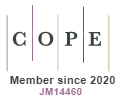This article aims to discuss gender equality from the guiding documents of education, also dealing with the historical overview of the different concepts that the term gender has received over the years and the practical effects of these inequalities. The relevance of the theme is linked to the transforming potential of formal education in parallel with the deliberative character that its pedagogical proposals are based on. This is a qualitative research, established in a descriptive literature. Among the findings, it was possible to observe that there is an androcentric posture used in official documents, as well as a neutrality that influences the decision-making of schools, also, we identified an interference caused by conservative currents in the formulation of public policies and the misuse of the verb "tolerate"
DOI:
https://doi.org/10.5585/41.2022.22437Keywords:
gender, curriculum, equalityAbstract
This article aims to discuss gender equality from the guiding documents of education, also dealing with the historical overview of the different concepts that the term gender has received over the years and the practical effects of these inequalities. The relevance of the theme is linked to the transforming potential of formal education in parallel with the deliberative character that its pedagogical proposals are based on. This is a qualitative research, established in a descriptive literature. Among the findings, it was possible to observe that there is an androcentric posture used in official documents, as well as a neutrality that influences the decision-making of schools, also, we identified an interference caused by conservative currents in the formulation of public policies and the misuse of the verb "tolerate".
Downloads
References
BRASIL. Ministério da Educação. Lei nº 9394 de 20 de dezembro de 1996. Estabelece as diretrizes e bases da educação nacional. Brasília: MEC, 1996.
DE TILIO, Rafael. Teorias de Gênero: Principais Contribuições Teóricas Oferecidas pelas Perspectivas Contemporâneas. Gênero. Niterói, v. 14, n. 2, p. 125-148, 2014. DOI: https://doi.org/10.22409/rg.v14i2.626
FARAH, Marta F. S.; Gênero e Políticas Públicas. Revista Estudos Feministas. Florianópolis, 2004.
FREIRE, Paulo. Política e Educação. Ensaios. v. 23, 5 ed. São Paulo: Cortez Editora, 2001.
GIL, Antônio C. Como elaborar projetos de pesquisa. 4 ed. São Paulo: Editora Atlas S. A, 2002.
GODOY, Arilda S. Pesquisa qualitativa: tipos fundamentais. Revista de Administração de Empresas. São Paulo, v. 35, n. 3, p. 20-29, mai-jun, 1995. DOI: https://doi.org/10.1590/S0034-75901995000300004
HEATHER, Alexander. Mitologia Grega: uma introdução para crianças. Histórias de deuses, deusas, heróis, monstros e outras criaturas míticas. Panda books, 2013.
LEAL, Nathalia C.; et. al. A questão de gênero no contexto escolar. Leopoldianun. v. 43, n. 121, 2017. Disponível em https://periodicos.unisantos.br/leopoldianum/article/view/758 Acesso em maio 2021.
LIBÂNEO, José C. Pedagogia e pedagogos: inquietações e buscas. Educar, Curitiba, n. 17, p. 153-176. 2001.
LIEBEL, Silvia. Demonização da mulher: a construção do discurso misógino no Malleus Maleficarum. ENCONTRO REGIONAL DE HISTÓRIA: IDENTIDADES E REPRESENTAÇÕES, 9, 2004, Ponta Grossa. Anais Eletrônicos, Paraná, UEPG, 2004.
NASCIMENTO, Ducilene R. S. Androcentrismo, a construção da dominação cultural masculina. Revista Científica Cognitionis. 1. Sem. Abr. 2020. DOI: : 10.38087/2595.8801.09
PARAISO, Marlucy A. A ciranda do currículo com gênero, poder e resistência. Revista Currículo sem Fronteiras. v. 16, n. 3, p. 388-415, set./dez. 2016. Disponível em https://www.curriculosemfronteiras.org/vol16iss3articles/paraiso.pdf Acesso em jun. 2021.
PEREIRA, Gustavo O. L. Da tolerância à hospitalidade na democracia por vir. Um ensaio a partir do pensamento de Jacques Derrida. SEMANA ACADÊMICA DO PPG EM FILOSOFIA DA PUCRS, 8, 2011, Porto Alegre. Anais Eletrônicos, Rio Grande do Sul, EDIPUCRS, 2012. Disponível em: https://ebooks.pucrs.br/edipucrs/anais/semanadefilosofia/VIII/1.16.pdf
PRAUN, Andrea G. Sexualidade, Gênero e Suas Relações de Poder. Revista Húmus, São Luís, v.1, n.1, 2011. Disponível em http://periodicoseletronicos.ufma.br/index.php/revistahumus/article/view/1641 Acesso em maio 2021.
REIS, Toni; EGGERT, Edla. Ideologia de Gênero: Uma Falácia Construída Sobre os Planos de Educação Brasileiros. Educação e Sociedade, Campinas, v. 38, n. 138, p. 9-26, jan-mar; 2017. Disponível em https://www.scielo.br/j/es/a/htcmPttv Fjg4sb8rYT8CzPD/abstract/?lang=pt Acesso em jun. 2021
RODRIGUES, Ana C. S.; SILVA, Laise M. A.; HORTIS, Jonantas S.; SANTOS, Tiago J. O currículo e a construção da identidade de gênero de alunos (as) de um internato agrícola. Polêmica - Revista Eletrônica da Uerj, Rio de Janeiro, v. 16, n. 4, 2016. Disponível em https://www.e-publicacoes.uerj.br/index.php/polemica/rt/printerFriendly/26451/0 Acesso em jun. 2021.
SILVA, Aniely; CRUZ, Bianca; GOMES, Jheniffer; et. al. Por que discutir gênero na escola? Ação Educativa, São Paulo, 2016.
SCHMIDT, Gleisson R. Uma questão de gênero? A diferença sexual como valor no discurso histórico acerca da histeria. Caderno de pesquisa interdisciplinar em Ciências Humanas. Florianópolis, v.14, n.104, p.67-84, jan/jun, 2013. Doi: https://doi.org/10.5007/ 1984-8951.2013v14n104p67
SOARES, Maria da C. S. A Produção da diferença no cotidiano das escolas: currículo, representação, significação e devir. In: RODRIGUES, Alexandro; BARRETO, Maria A. S. C. (orgs.). Currículos, Gêneros e Sexualidades Experiências Misturadas e Compartilhadas. Espírito Santo, p. 83-102, 2013.
SOARES, Vera. Políticas públicas para igualdade: papel do Estado e diretrizes. In: GODINHO, Tatau. SILVEIRA, Maria L. da (orgs.). Políticas públicas e igualdade de gênero. São Paulo: Coordenadoria Especial da Mulher, 2004.
TORRÃO FILHO, Amilcar. Uma questão de gênero: onde o masculino e o feminino se cruzam. Cadernos Pagu (UNICAMP), Campinas, v. 24, n. jul.
/dez., p. 127-152, 2005. Disponível em https://www.scielo.br/j/cpa/a/9qWCTLfW8Qvr9bTspS9dSsd/abstract/?lang=pt Acesso em maio 2021.
VEIGA, Ilma A. P. Projeto político-pedagógico da escola: uma construção coletiva. In: VEIGA, Ilma A. P. (org.). Projeto político-pedagógico da escola: uma construção possível. 14 ed. Campinas: Papirus, 2002.
VIANNA, Cláudia P.; UNBEHAUM, Sandra. O gênero nas Políticas Públicas da educação no Brasil: 1988-2002. Cadernos de Pesquisa, São Paulo, v.34, n. 121, jan/abr, 2004. Disponível em https://webcache.googleusercontent.com/search?q=cache:Oojkq-S5zQYJ:https://www.scielo.br/j/cp/a/KT99NbZ5MFVHHmSm4kwRVGN/abstract/%3Flang%3Dpt&cd=1&hl=pt-BR&ct=clnk&gl=br Acesso em maio 2021.
Downloads
Published
How to Cite
Issue
Section
License
Copyright (c) 2022 Dialogia

This work is licensed under a Creative Commons Attribution-NonCommercial-ShareAlike 4.0 International License.






